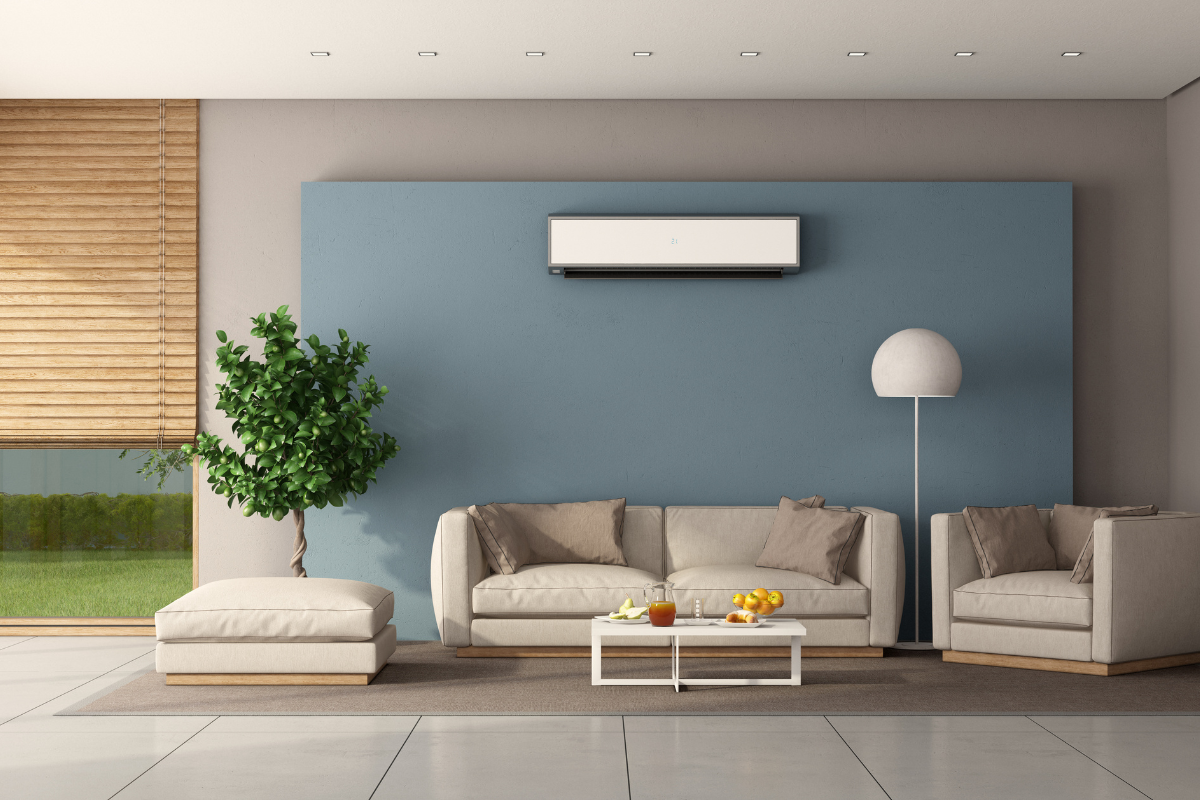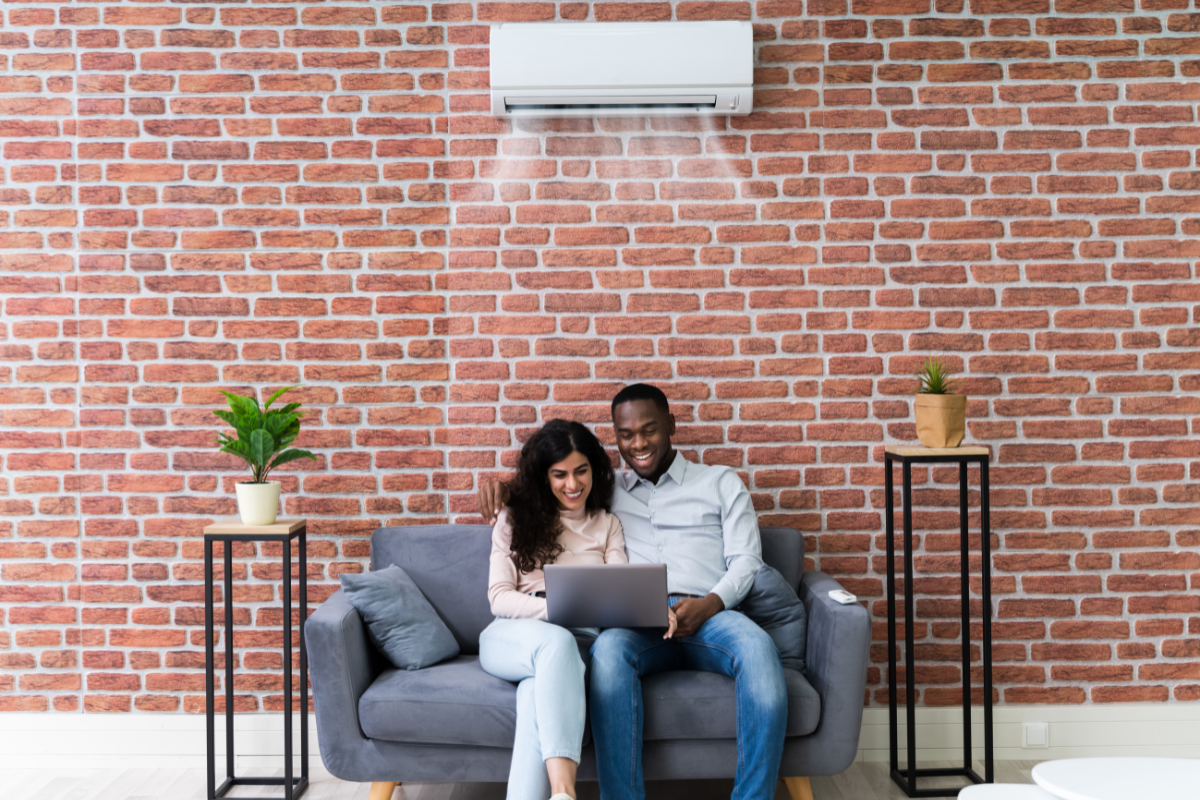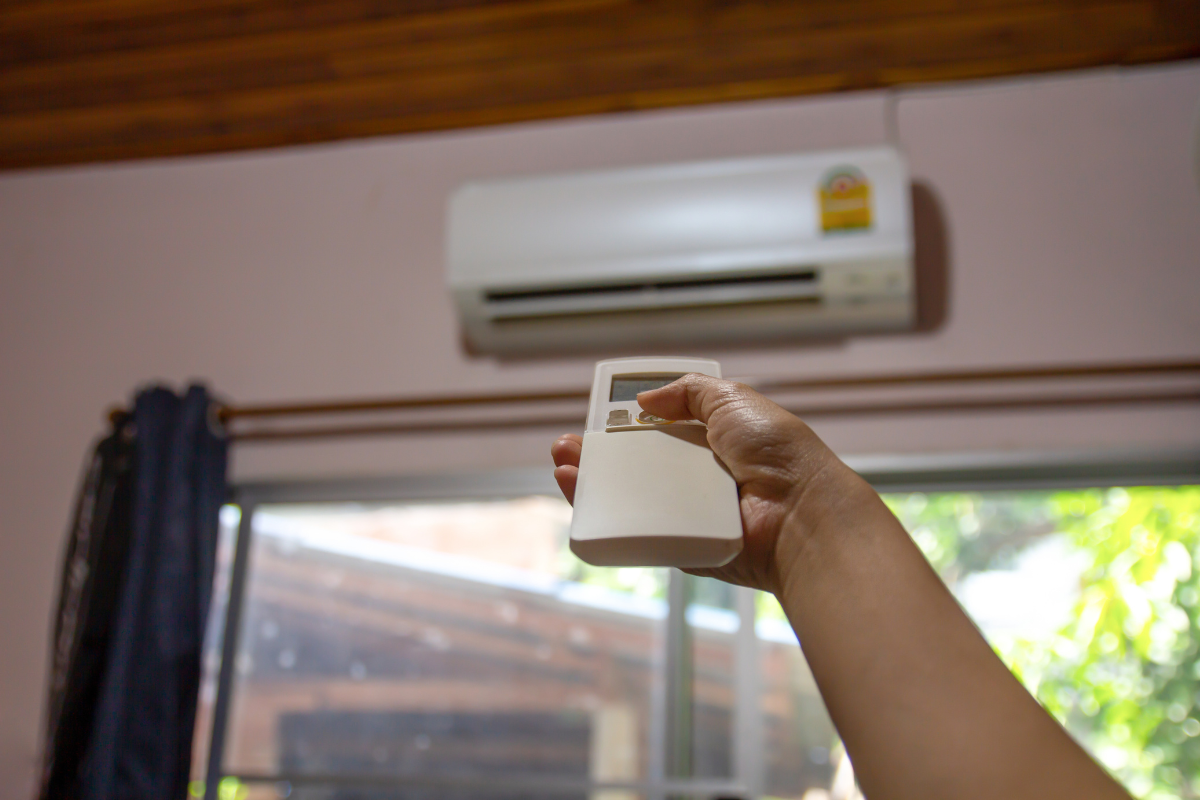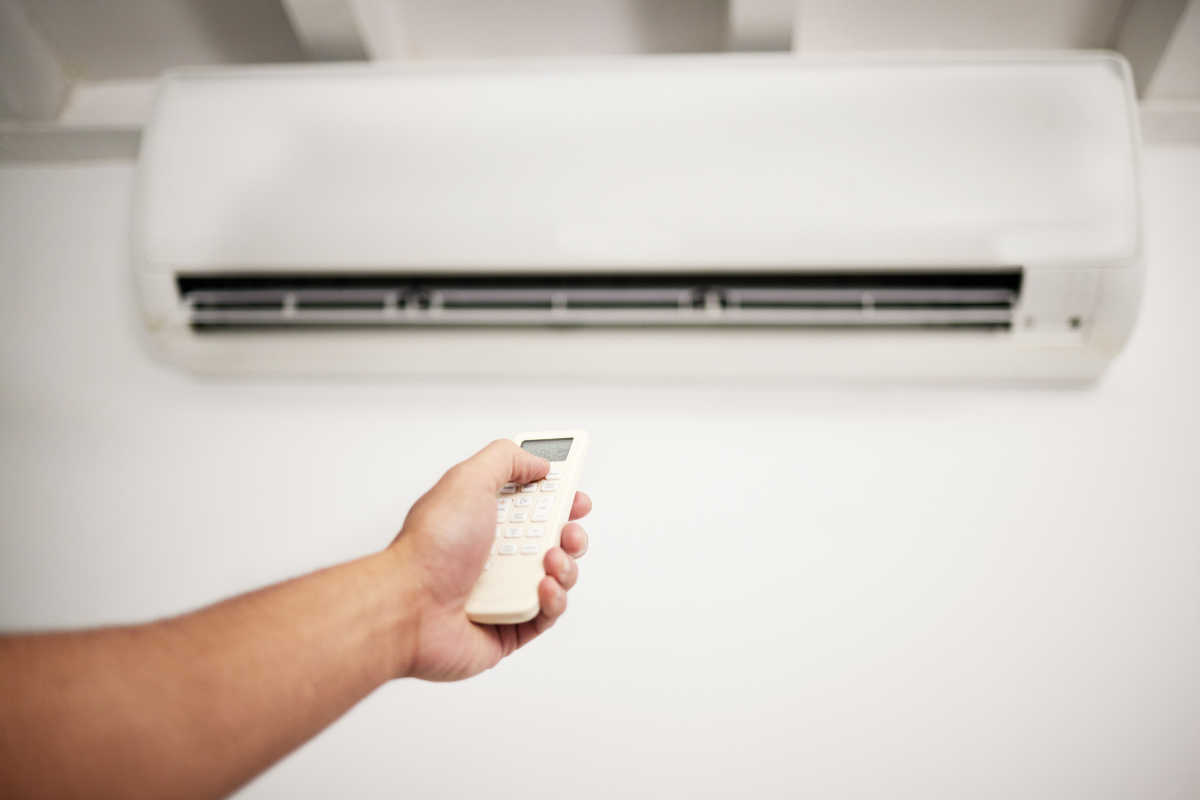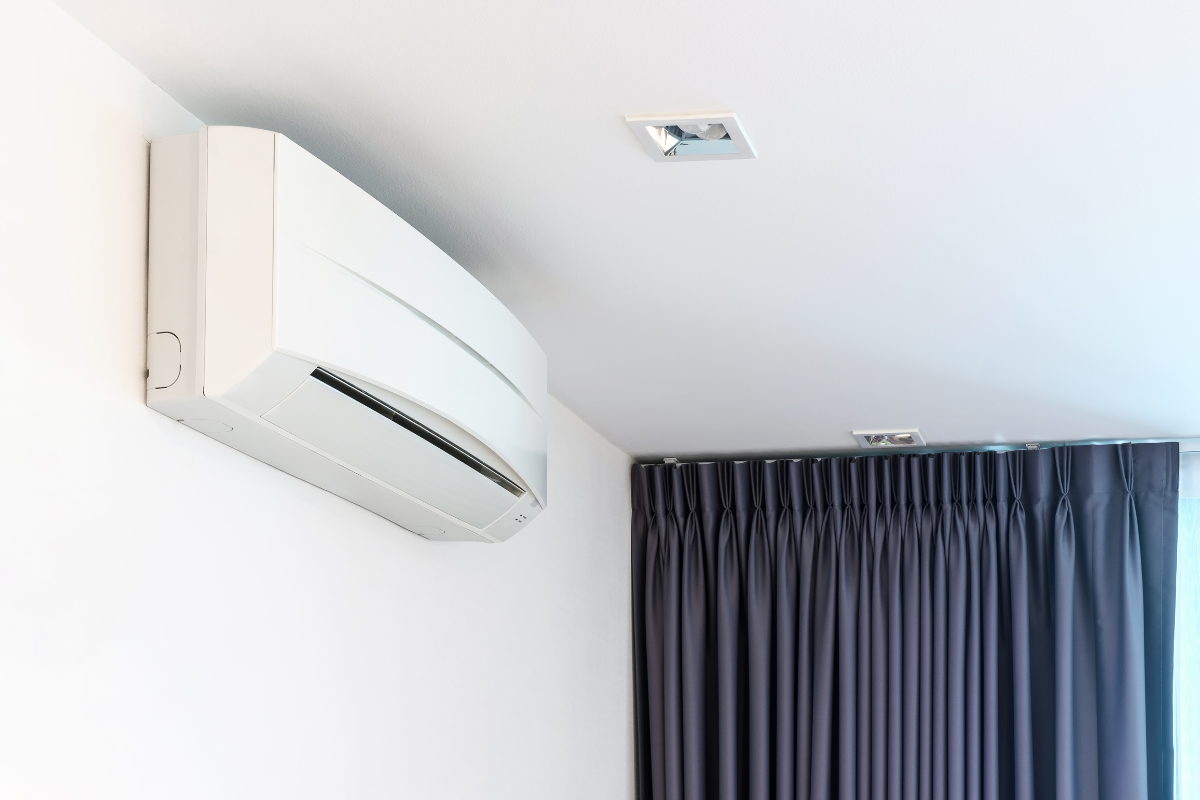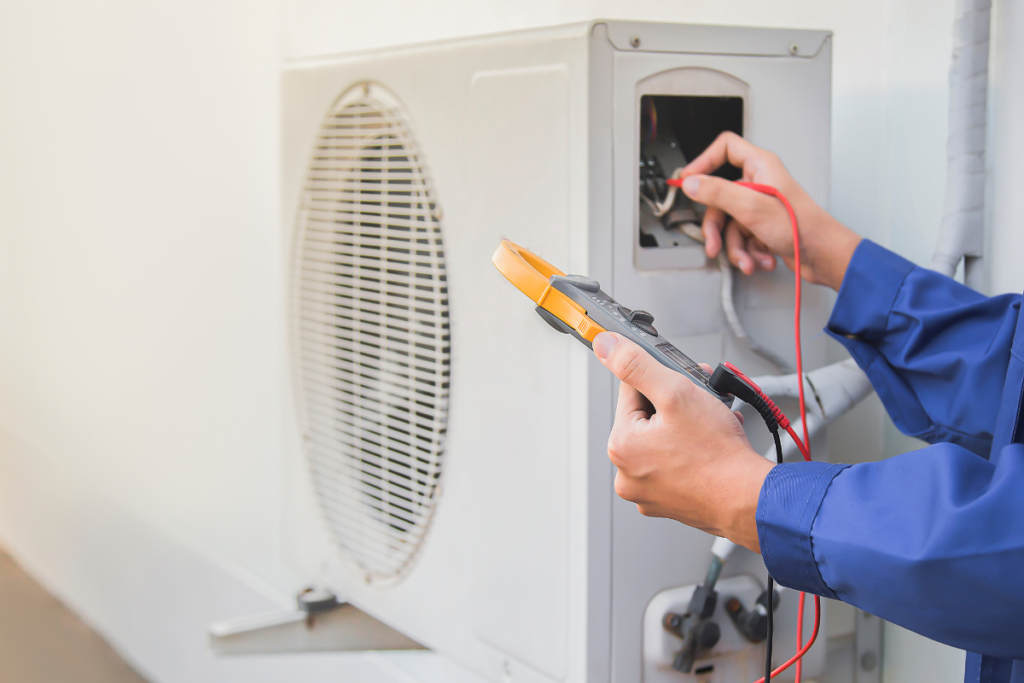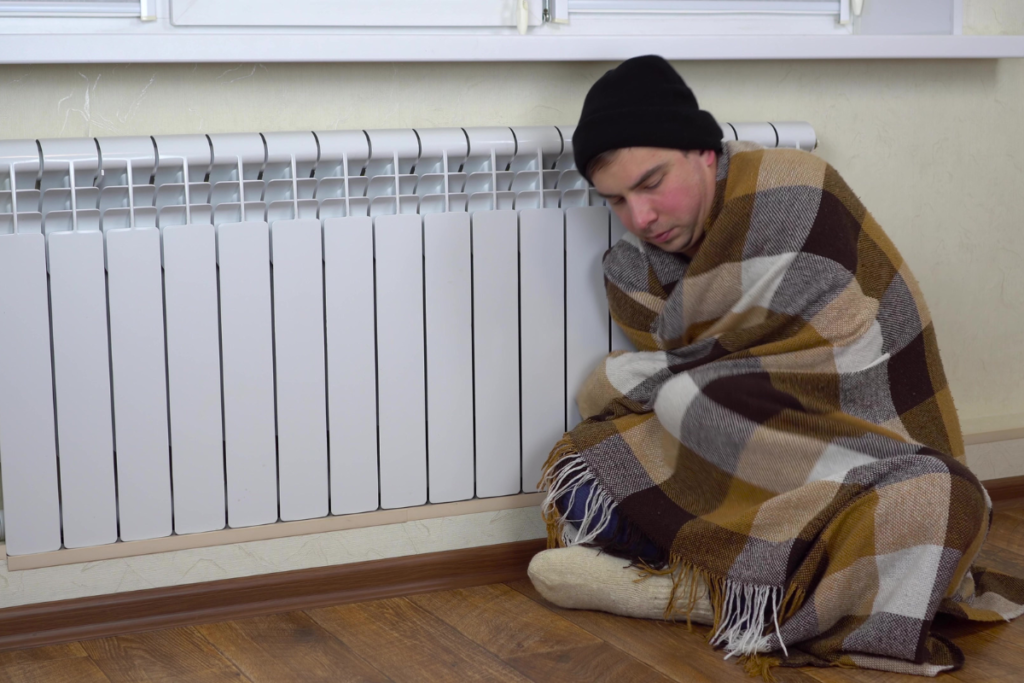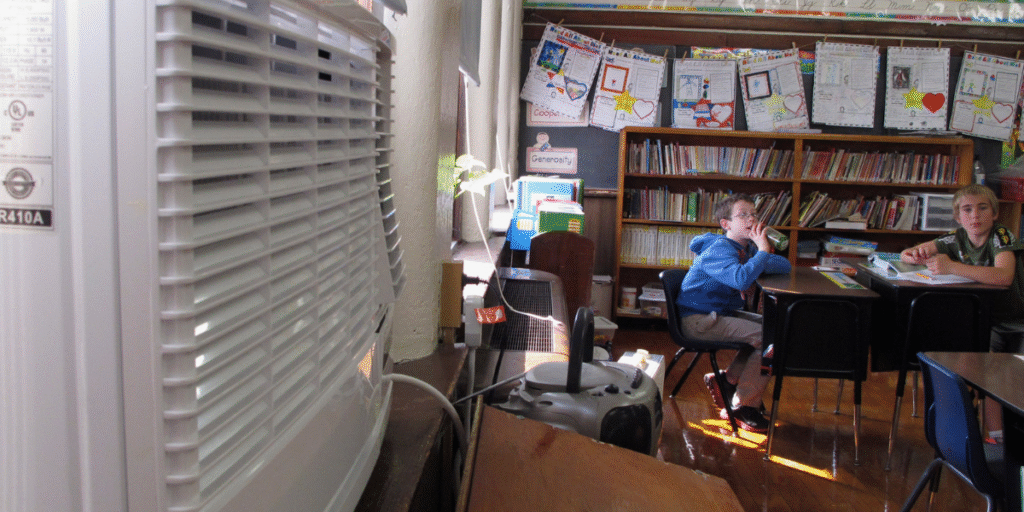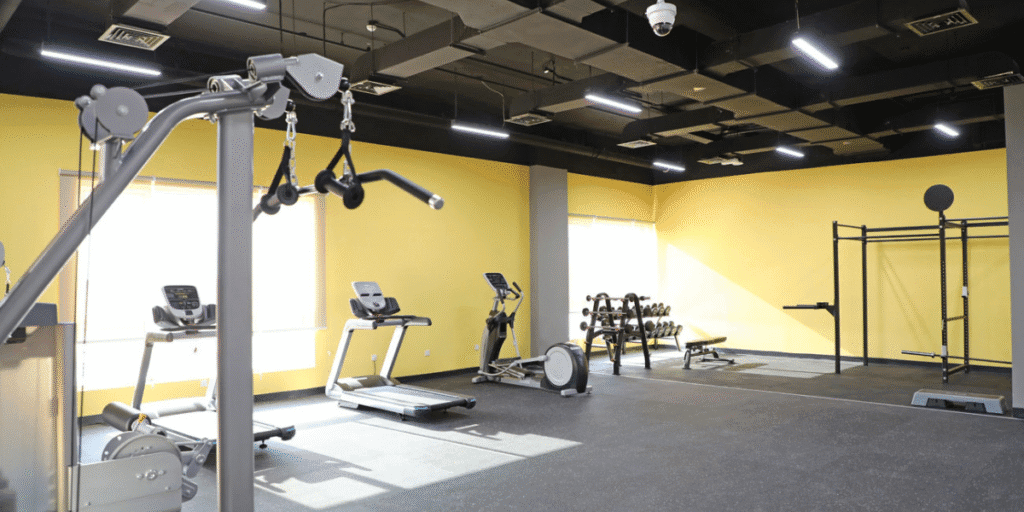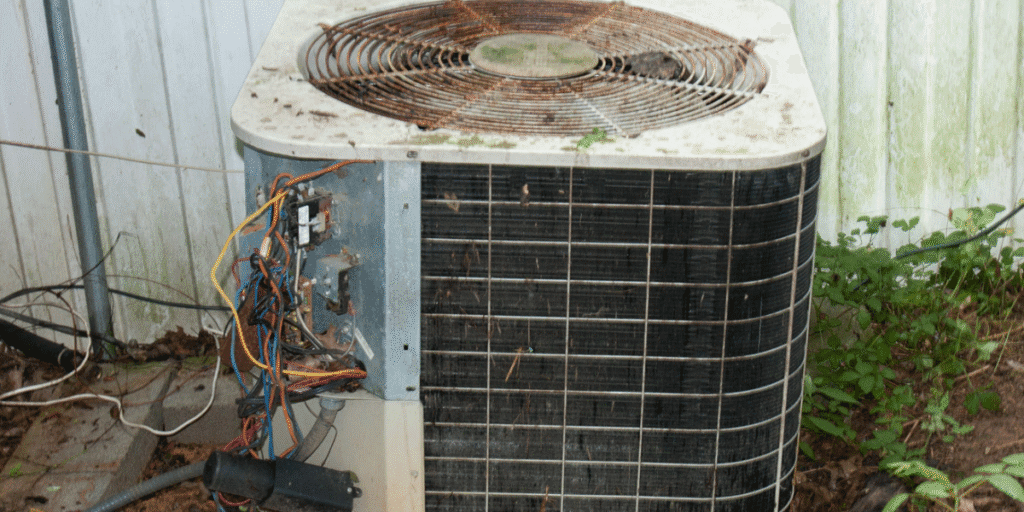Recently, many customers have come to DEEPCHILL to find solutions for air conditioner power outage. These power outages often arise from a variety of problems, including circuit breaker, AC capacitor failures, electrical overloads, surge voltage, and the essential aspect of air conditioner maintenance. This significantly disrupts the comfort of daily life in families, companies, or factories. Therefore, understanding these factors can help homeowners proactively solve the problem and maintain a comfortable environment.
Circuit Breaker Tripping
When too many appliances are using electricity at the same time, the total power consumption can exceed the load capacity of the wiring or circuit breaker. The circuit breaker will then automatically turn off to ensure safety, which is also one of the main causes of air conditioner power outages. This safety mechanism prevents potential risks but can prevent your air conditioner from working when you need it most.
Why does this phenomenon affect air conditioners?
In some cases, users do not detect that the circuit breaker has been tripped, leading to the assumption that the air conditioner power outage or has a technical error, while the actual cause is simply an overloaded electrical system. There are some consequences of power outages due to overload:
- Stopping in the middle of operation: Causes discomfort, especially on hot days.
- Affects the life of the air conditioner: Repeated sudden starts and stops can wear out the capacitor and damage the control board.
- Reduces energy saving efficiency: The air conditioner has to restart continuously, causing increased power consumption.
- Causes confusion in error diagnosis: Users or technicians may misdiagnose and replace unnecessary components.
To avoid electrical overload
Although the automatic circuit breaker can be inconvenient, it is an extremely necessary safety mechanism to protect both equipment and people. To avoid this situation, you need to find the cause of the overload and deal with it thoroughly, instead of just “turning the circuit breaker back on”. Here are DEEPCHILL’s suggestions:
- Install a separate outlet for the air conditioner: A separate power line should be used for the air conditioner with a wire of sufficient cross-section and a separate circuit breaker to ensure safety.
- Do not use too many high-power electrical appliances at the same time: Especially during peak hours, it is necessary to allocate the time to use high-load appliances reasonably.
- Check and upgrade the electrical system if necessary: For old houses, the power line may not be able to handle modern appliances, and should be checked and renovated by a professional electrician.
- Install a CB with a suitable threshold: If the CB is too sensitive or old, it can easily cut off the power when the load is not too much – it is necessary to replace it with the right capacity type.
Additional tips: Use air conditioners to save energy and be safer
- Choosing an inverter air conditioner helps reduce startup pressure and save electricity.
- Turn on the machine early, do not let the machine run at high capacity continuously – this reduces the load on the entire electrical system.
- Turn off unnecessary devices when using the air conditioner to distribute electricity reasonably.
AC Capacitor Failure
One of the common problems that is often overlooked by users when using air conditioners is a broken AC capacitor, which causes an air conditioner power outage. The capacitor is an important component in the electrical system of an air conditioner, especially for the compressor and the fan of the indoor or outdoor unit. The main role of the capacitor is to provide starting power and maintain a stable current for the motor to operate efficiently.
Effects of a damaged capacitor
When the capacitor fails, the air conditioner may experience the following phenomena:
- The machine cannot start: Due to insufficient voltage to activate the compressor.
- The machine suddenly turns off while running: Can cause interruption in cooling operation and affect the life of the device.
- Poor cooling or no cooling: Because the compressor is not working properly.
- The machine makes strange noises: Usually a “buzzing” sound or the sound of the engine trying to start but failing.
- The capacitor case is swollen or cracked: Happens due to overheating or prolonged exposure to electrical stress beyond the capacitor’s rated limit.
- There is a slight burning smell around the capacitor area: This often indicates internal arcing or component failure within the capacitor, leading to electrical burning.
What makes your AC capacitor fail?
These phenomena not only reduce cooling efficiency but can also cause widespread damage to other parts, such as the compressor – which is the most expensive part of the system. Some common causes of capacitor failure include:
- Component life: Capacitors typically have a lifespan of 5–10 years, after which their performance will gradually decrease.
- High ambient temperature: Causes capacitors to heat up quickly and become easily damaged.
- Unstable power source: Abnormal current fluctuations cause capacitors to overload.
- Dust and moisture: Affect the circuit board and capacitors, reducing their durability.
Preventive and corrective solutions
To minimize capacitor failure:
- Periodic maintenance: Clean and inspect the device at least 1-2 times/year. Technicians can measure the capacitor value to determine whether the capacitor is weak or damaged.
- Use a voltage stabilizer or lightning protection device: Ensure the power supply to the device is always stable.
- Do not overload the device: Close the door when using the air conditioner, avoid the device having to operate continuously in overheated conditions.
- Replace the correct type and specification of capacitor: When replacing, choose a genuine capacitor or one of equivalent quality to ensure the safety and durability of the device.
Surge voltage
In the electrical system, surge voltage is a dangerous phenomenon but often occurs suddenly and in a very short time, making it difficult for users to detect and causing an air conditioner power outage. Even though it only lasts for a split second, these voltage shocks can still cause serious damage to electronic devices, especially those with sensitive control circuits such as air conditioners. Here are some causes of voltage surges:
- Lightning: When lightning strikes near your home, the energy from the lightning can travel through the power lines and shock your equipment.
- Variations in the national grid: When a power plant experiences a problem, a load transfer, or a sudden imbalance in supply and demand, voltage can fluctuate abnormally.
- Industrial machinery or high-power equipment: When these devices start or stop suddenly, they can create strong feedback currents into the household electrical system.
- Sudden power start/loss: When there is a power outage and the power is restored too quickly, there will be strong voltage fluctuations for the first few seconds.
Source: What Is a Power Surge: Causes, Effects, and Protection
What happens if surge voltage occurs?
When surge occurs, these components are susceptible to short circuit, complete damage, leading to sudden air conditioner power outage, inability to restart, or unstable operation. In some serious cases, surge can damage the compressor – the most expensive part of the air conditioner.
Solutions to prevent this problem
To protect the air conditioner from this dangerous phenomenon, you should equip it with a surge protection device (SPD). These devices operate according to the following mechanism:
- Detects abnormal voltage current and redirects excess energy to the ground, not allowing it to enter the device.
- Absorb excess voltage thanks to components such as MOV (Metal Oxide Varistor) or TVS (Transient Voltage Suppression diode).
Benefits of installing a surge protection device: prevent damage to electronic components, prolong the life of the air conditioner, avoid interruptions in operation during the hot season, increase electrical safety for the whole family, reduce unnecessary repair or replacement costs.
Importance Of Regular Air Conditioning Maintenance
To prevent air conditioner power outages, regular air conditioner maintenance is essential. Scheduling routine check-ups with a qualified technician can help identify potential issues before they escalate. During these maintenance visits, professionals can inspect components, clean coils, and ensure that your system operates optimally.
You still haven’t found an air conditioning contractor providing air conditioning maintenance? Let’s DEEPCHILL help you!
DEEPCHILL is confident in being a reputable provider of air conditioning maintenance and repair services. Our staff are experts in the field, enthusiastic and dedicated. We not only serve people in the Gold Coast area but are also ready to serve in neighboring areas such as: Arundel & Parkwood, Ashmore, Biggera Waters, Broadbeach, Burleigh Heads and many other locations.
Please have a look at our website to book a service based on your request.

